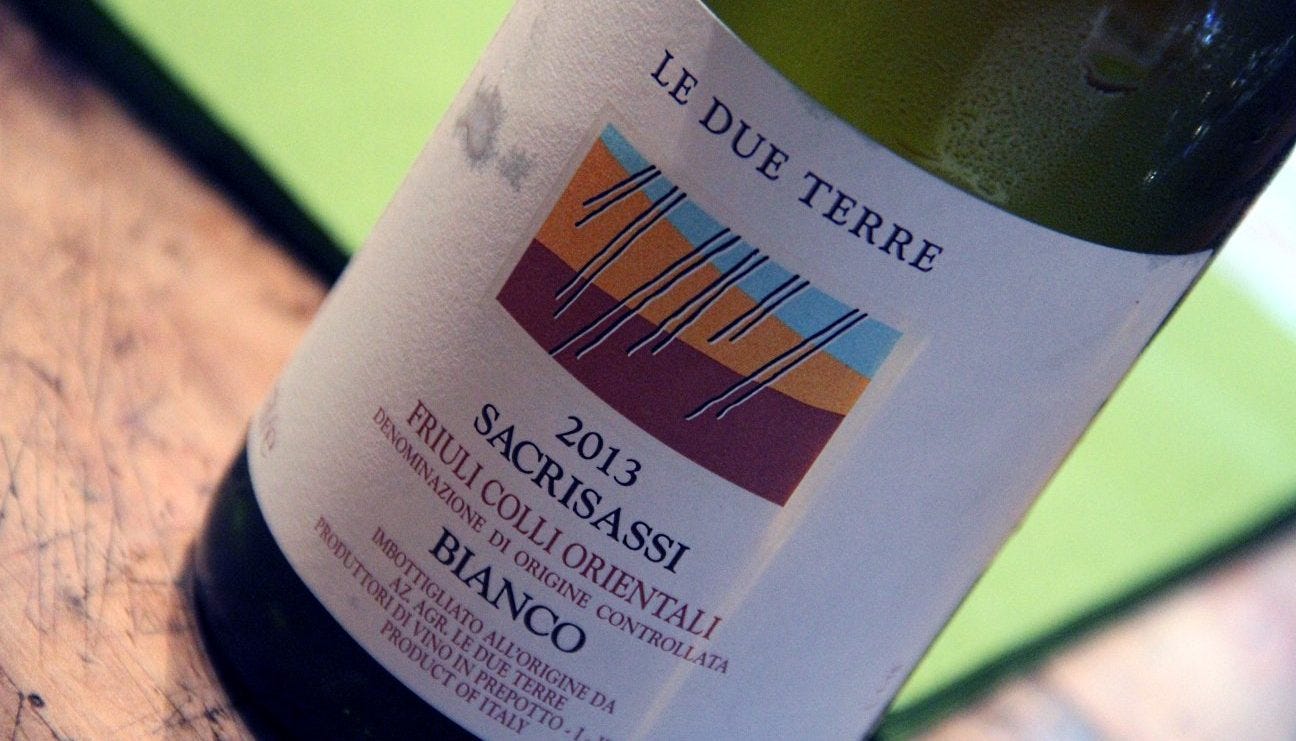Le Due Terre - Sacrisassi Bianco 2013
It's starting to become a theme in this series - edge cases which are not really orange wines. Take the sole white wine from microscopic but world reknowned Le Due Terre, in Friuli Colli Orientali. A blend of Friulano with 30% Ribolla Gialla, it has 10-12
Every week, I select an orange wine (a white wine made with extended skin contact) that grabbed my attention. View the whole series here.

Edge cases are starting to become a theme in this series - they're everywhere when you start to look. Of course it's problematic being stuck with a term like "orange wine" - even though the vernacular is convenient, ca…
Keep reading with a 7-day free trial
Subscribe to The Morning Claret to keep reading this post and get 7 days of free access to the full post archives.



